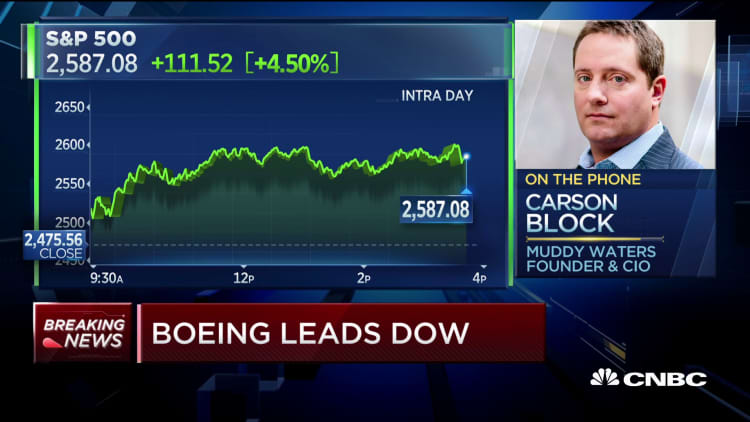Bans on short-selling in a host of major European countries were lifted Monday, with regulators citing less turbulent market conditions.
The bans came into force in mid-March after stock markets worldwide suffered a historic string of losses, as the spread of the coronavirus in Europe began to force countries across the continent to shut down their economies.
Short selling involves an investor borrowing a security and selling it on the open market, with a view to buying it back later at a reduced price, capitalizing on the expected depreciation in its value. It is a common, albeit controversial, practice at times of great market distress in particular.
The move to temporarily ban the practice came after the pan-European Stoxx 600 index plunged 34% over the course of the month to mid-March, including notching its biggest single-day percentage decline in history on March 12.
The European blue chip index climbed 6.24% over the month of April but remains down more than 19% for the year to date.
On Monday, Austrian, Belgian, Greek, French, Italian and Spanish securities regulators took a joint decision to lift the restrictions. The U.K. and Germany did not impose bans.

France's Autorité des Marchés Financiers and Italy's Commissione Nazionale per le Società e la Borsa cited a "progressive normalization" of markets.
Jack Inglis, CEO of the Alternative Investment Management Association (AIMA) which represents the global alternative investment industry, welcomed the decision in a statement Monday.
"We hope that the experience from this round of bans will lead to a broader acknowledgement that they don't achieve their intended aims and instead damage the market and disadvantage end investors," Inglis said.
AIMA, FIA European Principal Traders Association, Managed Funds Association and The World Federation of Exchanges had last week written joint letters to all six regulators and the respective countries' finance ministers, urging an end to the bans.
The various bodies argued that market data in the countries which implemented bans "show that those securities are not collectively performing better than those in comparable jurisdictions that are not subject to restrictions; shares are more volatile than they were prior to the bans; and markets exhibit wider spreads since restrictions were put in place."
The letters stressed that short-selling has an important role in bringing liquidity to financial markets and checking downward price pressures. They added that the measures risked "undermining confidence in key European financial markets and hampering the goal of a Capital Markets Union, something that will be vital to European recovery from the profound economic shock caused by Covid-19."

